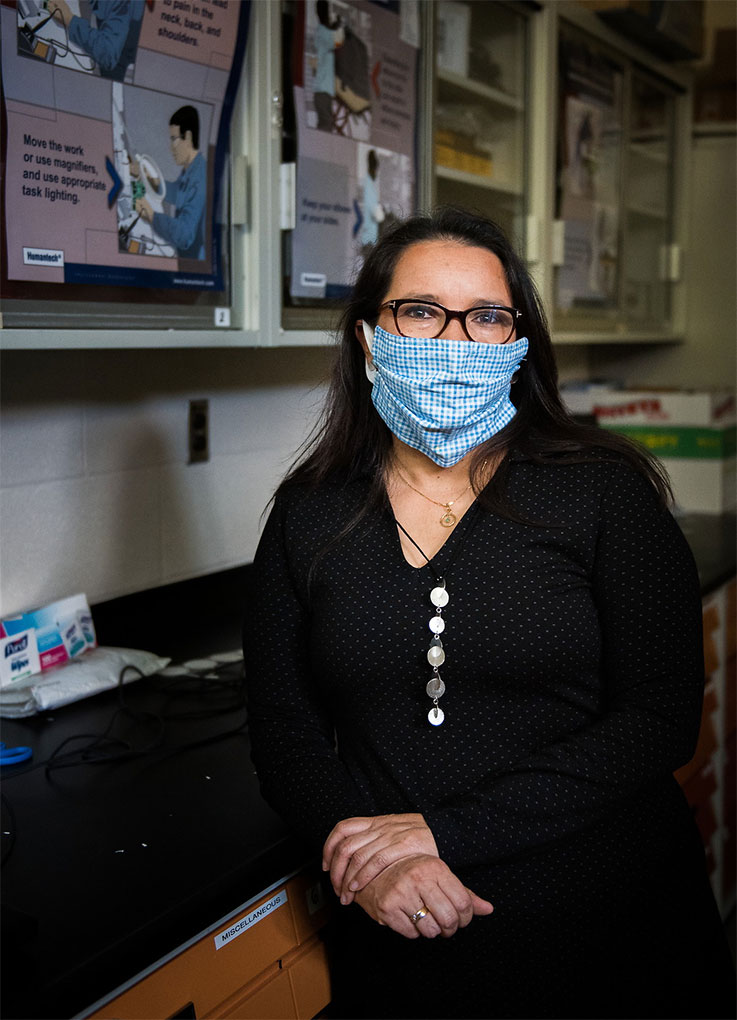
Courses she teaches
- SAFE 212 Hazard Prevention Management
- SAFE 335 Industrial and Environmental Stressors
- SAFE 610 Safety Management
- SAFE 623 Advanced Safety Administration
- SAFE 647 Applied Ergonomics
- SAFE 803 Epidemiology in Safety Sciences
- SAFE 812 Applied Research III: Mixed Methods
- SAFE 814 Advanced Topics in Ergonomics
A Safety Sciences professor at IUP is coming close to cracking the case on why a high number of industrial workers suffer from lower back pain.
Luz S. Marín conducted her research in Bogota, Colombia.
“Protecting workers is an investment,” Marín said. “Safety sciences professionals are driven to protect employees, and they work to protect profits for companies. Protecting workers while ensuring profit is possible and essential. When employers invest in safety, they're investing in their workforce, which typically makes the mission of the company easier to accomplish.”
It's an investment in the whole person and, ultimately, a healthier society. Marín believes people who give their entire working lives to an industry have the right to retire from that career in good health. Marín's research in Colombia reveals that whole-body vibration on surface mine workers takes a toll over time.
Protecting the body could be as simple as investing in a different seat for a driver.
“A higher quality seat is designed to help buffer the vibrations the body absorbs while operating equipment,” Marín said.
A better seat could possibly mean less exposure for workers, less time away from the job to recover from injury, and, potentially, a more productive company. Over a career, it might mean fewer visits to the doctor and fewer insurance claims.
The commitment to safety doesn't just apply to whole-body vibrations and construction workers. There are hazards in almost every workplace. It's an investment, Marín believes, that is important for the health of any workforce and ultimately, society. Taking a more wholistic view of a nation's employees, whether in Colombia or in America, benefits everyone.
Students enrolled in Marín's Industrial and Environmental Stressors course discuss and research work pressures on employees. They consider environmental, physical, and emotional factors that play a role in the health and well-being of a workforce which someday they may be tasked with keeping safe.
“Workers come and they give to a company their skills in many aspects: physical, mental, and emotional capacities,” Marín continued. “It is our responsibility to provide the best conditions we can for them to do the job that doesn't negatively affect themselves. When these workers have retired and they're back to society as regular people, I believe they have a right to contribute to society in a meaningful way. If they're sick from the job they performed for decades, those option are limited.”
It's a social investment for a more positive future.
It's safe to say the reputation of IUP's Department of Safety Sciences can be measured on a global scale. The program has long enjoyed success in the industry after thousands of students graduated from the program, established in 1971, and applied their knowledge to various corporate and industrial sectors around the world. Adding to that stature is faculty member Luz Marín whose research focuses on evaluating and controlling occupational hazards including the whole-body vibration study that took place in Bogota, Colombia. She has conducted research in the safety and health field in America and Colombia and collaborates frequently with colleagues from Brazil and Mexico. IUP students studying safety sciences at the undergraduate or graduate levels know they're learning from the best. The program is one of two in Pennsylvania accredited by the American Society of Safety Professionals (ASSP), a professional organization of safety workers around the world. Marín was chosen as the 2020 ASSP Hispanic Community Safety Professional of the Year.